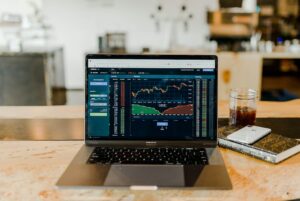5 Essential Tips for Beginner Forex Traders
Forex trading can be an exciting and potentially profitable venture for those who are willing to put in the time and effort to learn the ins and outs of the market. However, for beginner traders, the forex market can also be a daunting and overwhelming place. With its fast-paced nature and complex terminology, it is easy to feel lost and confused. That’s why we have compiled a list of 5 essential tips for beginner forex traders to help you get started on the right foot.
1. Educate Yourself
The first and most important tip for beginner forex traders is to educate yourself about the market. Forex trading involves buying and selling different currencies with the aim of making a profit from fluctuations in exchange rates. To be successful in this field, it is crucial to understand how the forex market works, including the factors that influence currency prices and the various trading strategies that can be used.
There are numerous educational resources available to help you learn about forex trading. Online courses, books, and tutorials can provide you with the necessary knowledge and skills to make informed trading decisions. It is also essential to stay updated with current market trends and news that may affect currency prices. This can be done through financial news websites, forex forums, and by following reputable forex analysts and experts.
2. Start with a Demo Account
Once you have acquired some basic knowledge about forex trading, it is advisable to start with a demo account. A demo account allows you to trade in a simulated environment using virtual money, without risking any real capital. This is a great way to practice your trading strategies and get a feel for how the market works without the fear of losing money.
Using a demo account also enables you to familiarize yourself with the trading platform you will be using. Most forex brokers offer demo accounts that replicate the live trading environment, allowing you to execute trades, analyze charts, and test different indicators and tools. Take advantage of this opportunity to refine your trading skills and gain confidence before moving on to live trading.
3. Develop a Trading Plan
Having a well-defined trading plan is a crucial step for any forex trader, especially beginners. A trading plan outlines your trading goals, risk tolerance, and the strategies you will use to achieve them. It should also include your trading capital, the maximum amount you are willing to risk on each trade, and the criteria for entering and exiting positions.
A trading plan helps you stay disciplined and avoid impulsive decisions based on emotions. It acts as a roadmap, guiding you through the ups and downs of the market. Stick to your plan and avoid deviating from it, even if you encounter losses. Remember, forex trading is a long-term game, and consistency is key.
4. Practice Risk Management
One of the most important aspects of forex trading is risk management. As a beginner trader, it is crucial to understand and apply risk management principles to protect your trading capital. This includes setting stop-loss orders to limit potential losses and using appropriate position sizing techniques to ensure that you are not risking more than a certain percentage of your account on any single trade.
Risk management also involves diversifying your trading portfolio by trading different currency pairs and not putting all your eggs in one basket. Additionally, it is essential to avoid overtrading and not to chase losses by increasing your position sizes after a losing trade. By practicing effective risk management, you can minimize your losses and protect your account from being wiped out by a single bad trade.
5. Learn from Your Mistakes
Finally, it is essential to learn from your mistakes as a beginner forex trader. Losing trades and setbacks are a part of the learning process, and it is crucial to reflect on them and identify any patterns or mistakes that you may be making. Keep a trading journal to record your trades, including the reasons behind each trade, the outcome, and any lessons learned.
Reviewing your trading journal regularly can help you identify areas for improvement and make necessary adjustments to your trading strategy. It also allows you to track your progress over time and build on your successes. Remember, forex trading is a continuous learning experience, and even experienced traders make mistakes. The key is to learn from them and keep improving your skills and knowledge.
In conclusion, forex trading can be a rewarding endeavor for beginner traders, but it requires dedication, education, and practice. By following these 5 essential tips, you can start your forex trading journey on the right track. Remember to educate yourself, start with a demo account, develop a trading plan, practice risk management, and learn from your mistakes. With time and experience, you can become a successful forex trader.






